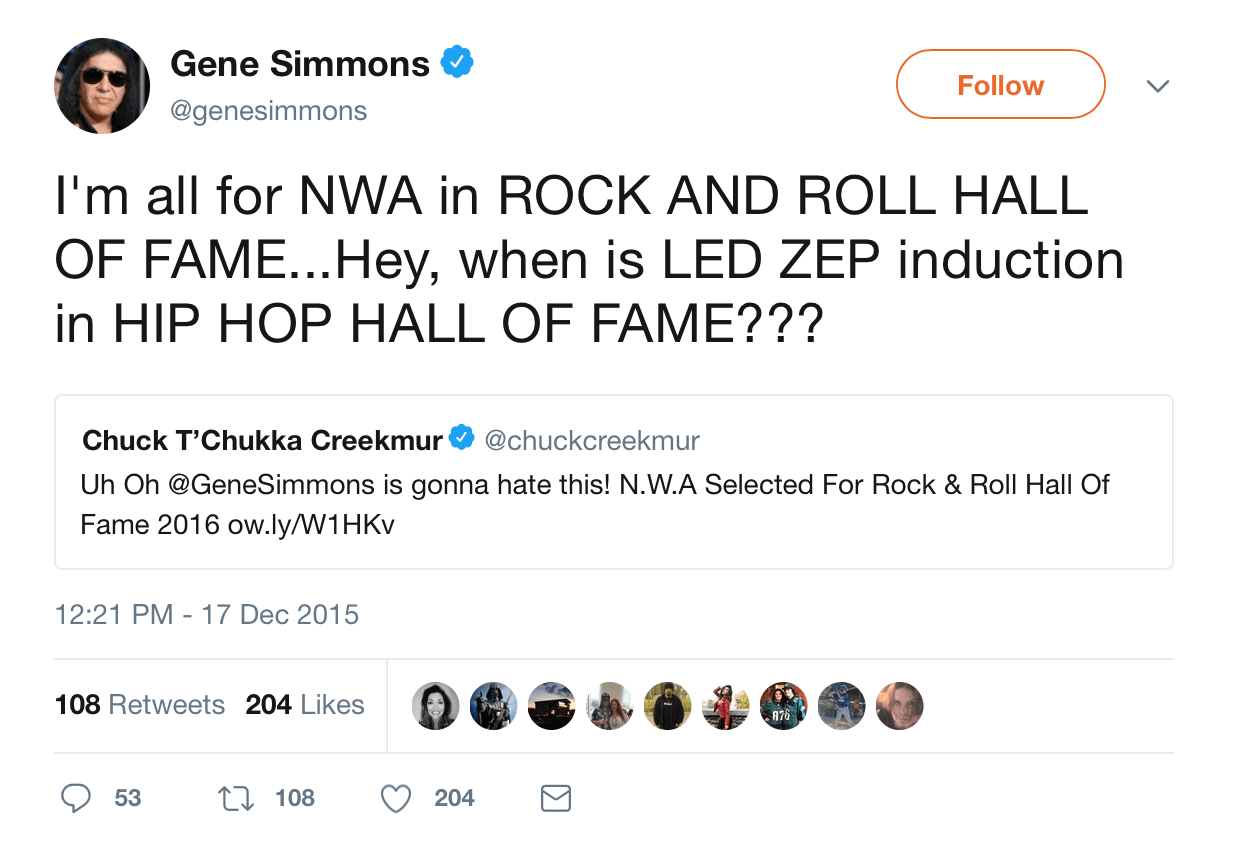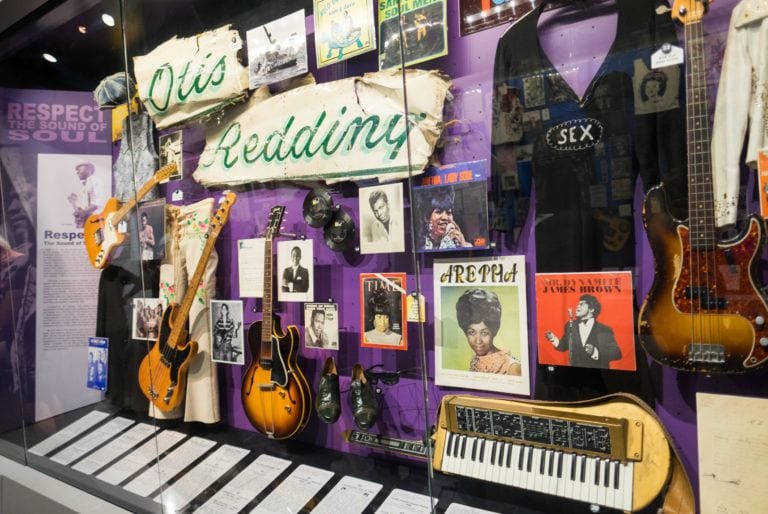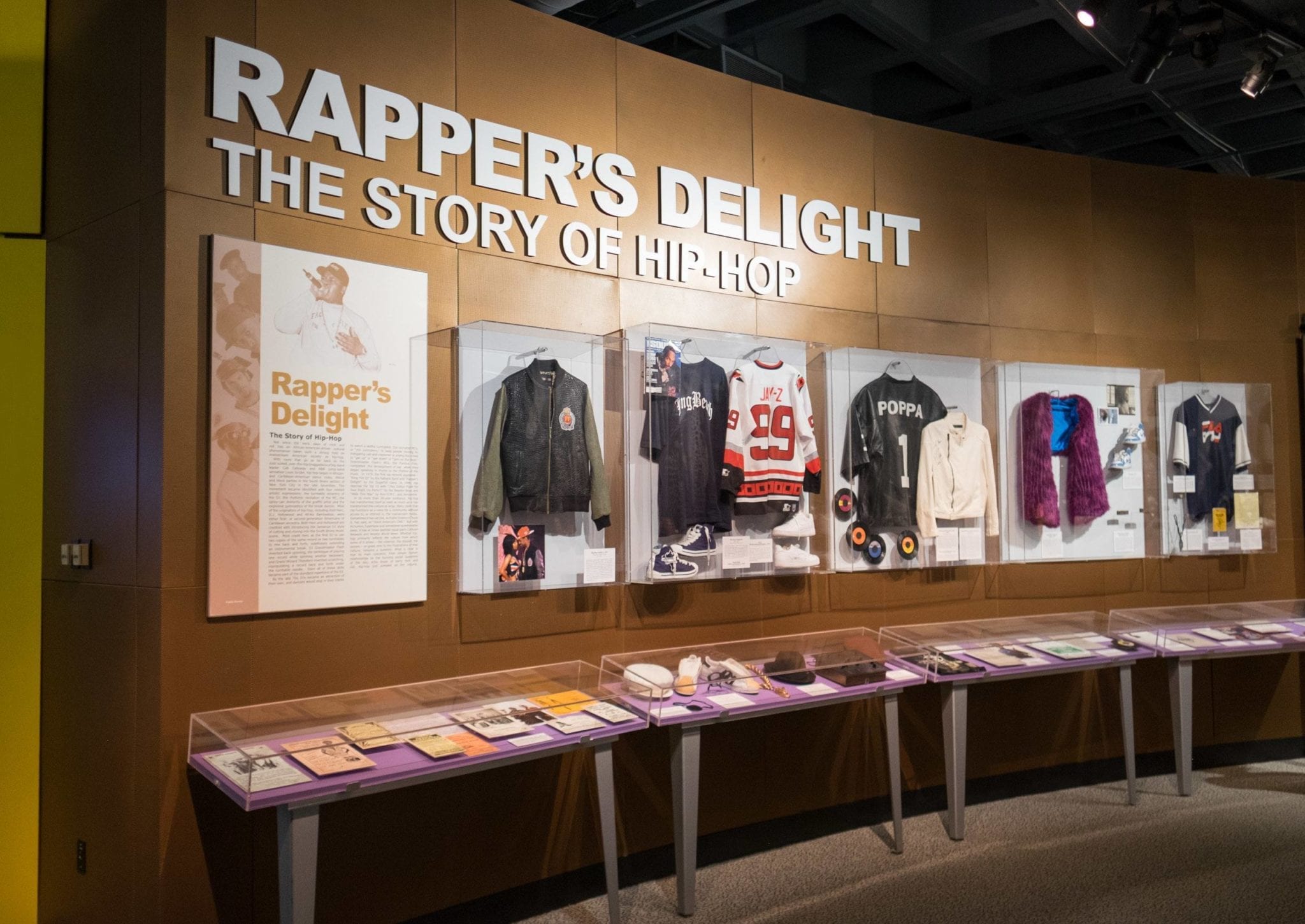Hip Hop In The Rock And Roll Hall Of Fame: A Journey Of Recognition And Legacy
Hip hop music has become an undeniable force in the global music scene, influencing culture and breaking boundaries in ways few genres have achieved. Its induction into the Rock and Roll Hall of Fame symbolizes a significant milestone in the evolution of music history. From its roots in the streets of the Bronx to its global prominence, hip hop's journey is nothing short of remarkable. This article explores the impact and significance of hip hop's inclusion in one of the most prestigious music institutions in the world.
Hip hop's journey from underground movements to mainstream recognition is a testament to its resilience and adaptability. Over the decades, hip hop has grown from being a niche genre to a global phenomenon, influencing not only music but also fashion, art, and social movements. The Rock and Roll Hall of Fame's acknowledgment of hip hop's contributions highlights its importance in shaping modern music culture.
As we delve deeper into this topic, we will explore the history of hip hop, its cultural significance, and the impact of its induction into the Rock and Roll Hall of Fame. Through this exploration, we aim to provide a comprehensive understanding of why hip hop deserves its place among the legends of rock and roll.
Read also:Abigail Spencer Sex Tape Debunking Myths And Understanding The Truth
Table of Contents
- The History of Hip Hop
- Hip Hop Culture and Its Elements
- The Rock and Roll Hall of Fame: An Overview
- Hip Hop's Induction into the Rock and Roll Hall of Fame
- Impact on the Music Industry
- Cultural Significance of Hip Hop
- Criticism and Controversy Surrounding Hip Hop
- The Future of Hip Hop
- Notable Hip Hop Inductees
- Conclusion
The History of Hip Hop
Hip hop originated in the South Bronx, New York City, during the late 1970s. It emerged as a form of expression for African American and Latino communities facing economic and social challenges. The genre was born out of block parties, where DJs began isolating the percussion breaks of funk and soul records, creating a new sound that captivated audiences. This innovation laid the foundation for what would become one of the most influential music genres in history.
Key Figures in Hip Hop's Early Years
Several key figures played pivotal roles in the development of hip hop. DJs like Kool Herc, Afrika Bambaataa, and Grandmaster Flash revolutionized the art of DJing, while MCs such as Melle Mel and Grandmaster Caz brought lyrical storytelling to the forefront. These pioneers not only shaped the sound of hip hop but also established its cultural identity.
- Kool Herc - Known as the father of hip hop, he introduced the breakbeat technique.
- Afrika Bambaataa - A cultural activist who popularized the phrase "Peace, Love, Unity, and Having Fun."
- Grandmaster Flash - Innovated DJ techniques like scratching and backspinning.
Hip Hop Culture and Its Elements
Hip hop is more than just music; it is a culture that encompasses four primary elements: MCing (rapping), DJing, breakdancing, and graffiti art. Each element contributes to the rich tapestry of hip hop culture, making it a multifaceted art form that resonates with people worldwide.
The Four Elements of Hip Hop
MCing involves vocal performance, where artists deliver rhymes over beats. DJing focuses on manipulating records to create unique soundscapes. Breakdancing, or b-boying, is a dynamic dance style that complements the music, while graffiti art visually represents the culture through vibrant murals and designs.
Together, these elements create a cohesive cultural experience that has inspired countless individuals to express themselves creatively.
The Rock and Roll Hall of Fame: An Overview
Established in 1983, the Rock and Roll Hall of Fame honors musicians, bands, and industry figures who have made significant contributions to the development and preservation of rock and roll music. Located in Cleveland, Ohio, the institution serves as a museum and archive dedicated to celebrating the legacy of rock and roll.
Read also:Cardi B Nsfw Exploring The Sensational Side Of An Iconic Artist
While traditionally associated with rock music, the Hall of Fame has expanded its scope to include other genres, recognizing their influence on the broader musical landscape.
Hip Hop's Induction into the Rock and Roll Hall of Fame
In 2007, Grandmaster Flash and the Furious Five became the first hip hop act to be inducted into the Rock and Roll Hall of Fame. This historic moment marked a turning point in the recognition of hip hop as a legitimate and influential genre. Since then, several other hip hop artists have joined the prestigious ranks of the Hall of Fame, further solidifying hip hop's place in music history.
Significance of Hip Hop's Induction
The induction of hip hop into the Rock and Roll Hall of Fame acknowledges the genre's impact on music and culture. It validates hip hop's contributions to the evolution of popular music and highlights its ability to address social issues and inspire change.
By including hip hop, the Hall of Fame embraces a more inclusive and diverse representation of music history, reflecting the changing dynamics of the industry.
Impact on the Music Industry
Hip hop's influence on the music industry is undeniable. It has transformed the way music is produced, consumed, and distributed. From its early days of underground mixtapes to its current dominance on streaming platforms, hip hop has consistently pushed the boundaries of what music can achieve.
Key Contributions of Hip Hop to the Music Industry
- Introduction of sampling techniques that revolutionized music production.
- Popularization of collaborations across genres, fostering innovation and diversity.
- Empowerment of independent artists through digital platforms and social media.
These contributions have reshaped the music industry, paving the way for new opportunities and creative expressions.
Cultural Significance of Hip Hop
Beyond its musical impact, hip hop has played a crucial role in shaping cultural narratives. It serves as a voice for marginalized communities, addressing issues such as racial inequality, poverty, and political oppression. Through its lyrics and artistry, hip hop challenges societal norms and advocates for change.
Hip Hop as a Tool for Social Change
Artists like Public Enemy, Tupac Shakur, and Kendrick Lamar have used their platforms to raise awareness about social injustices and inspire activism. Their work resonates with audiences globally, fostering dialogue and encouraging action.
Hip hop's cultural significance extends beyond music, influencing fashion, language, and visual arts. Its global reach has made it a powerful force in shaping contemporary culture.
Criticism and Controversy Surrounding Hip Hop
Despite its many accomplishments, hip hop has faced criticism and controversy throughout its history. Critics argue that certain aspects of the genre promote violence, misogyny, and materialism. These concerns have sparked debates about the responsibility of artists to use their platforms for positive change.
Addressing Criticism in Hip Hop
Many hip hop artists have responded to criticism by addressing these issues in their music and advocating for social responsibility. Collaborations with organizations focused on education, community development, and social justice demonstrate the genre's potential for positive impact.
While challenges remain, hip hop continues to evolve, embracing diverse perspectives and promoting inclusivity.
The Future of Hip Hop
As hip hop continues to grow and expand, its future looks promising. Emerging artists are pushing the boundaries of the genre, incorporating new sounds and styles while staying true to its roots. The global reach of hip hop ensures its continued relevance and influence in the music industry.
Trends Shaping the Future of Hip Hop
- Increased focus on storytelling and authenticity in lyrics.
- Integration of technology and innovation in music production.
- Collaborations across cultures and genres to create unique sounds.
These trends highlight the adaptability and resilience of hip hop, ensuring its place in the future of music.
Notable Hip Hop Inductees
Several hip hop artists have been honored with induction into the Rock and Roll Hall of Fame, recognizing their contributions to the genre and its impact on music history. Below is a list of notable inductees:
| Artist/Group | Year of Induction | Notable Achievements |
|---|---|---|
| Grandmaster Flash and the Furious Five | 2007 | Pioneering DJ techniques and influential tracks like "The Message." |
| Rap legends Run-D.M.C. | 2009 | Credited with bringing hip hop to mainstream audiences. |
| Tupac Shakur | 2017 | Iconic voice for social justice and equality. |
| The Notorious B.I.G. | 2020 | Known for his storytelling and lyrical prowess. |
Conclusion
Hip hop's inclusion in the Rock and Roll Hall of Fame marks a significant milestone in the evolution of music history. From its humble beginnings in the South Bronx to its global prominence, hip hop has demonstrated its ability to transcend boundaries and influence culture in profound ways. Its induction into the Hall of Fame acknowledges its contributions to the music industry and its role in shaping contemporary society.
We encourage readers to explore the rich history and cultural significance of hip hop further. Share your thoughts and insights in the comments below, and don't forget to check out other articles on our site for more in-depth discussions on music and culture. Together, let's celebrate the legacy and future of hip hop!



